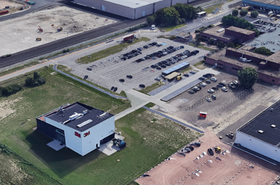The US, Canada, and 61 other nations have signed a pledge to reduce emissions from cooling by two-thirds before 2033.
The Cooling Pledge, signed at the COP28 climate summit, commits the nations to reducing emissions by 68 percent, along with improving the energy efficiency of cooling systems. The initiative covers refrigeration for food and medicine, as well as the use of air conditioning.
The data center industry is a major user of air conditioning systems and, along with other sectors, faces an increased demand for cooling in response to rising global temperatures.
Alongside this, the rapidly growing density and capacity of the data center sector is also a cause for concern, increasing the demand for cooling, and the resultant emissions still further.
According to the United Nations, the pledge could provide “universal access to life-saving cooling, take the pressure off energy grids, and save trillions of dollars by 2050.”
A UN Environment Programme (UNEP) report estimates that more than one billion people (mostly in Africa and Asia) are at high risk from extreme heat due to a lack of cooling access – and nearly one-third of the world’s population is exposed to deadly heat waves more than 20 days a year.
So cooling is essential, but the cooling industry produces over seven percent of global greenhouse gas emissions, and its energy demands are set to triple by 2050.
“The cooling sector must grow to protect everyone from rising temperatures, maintain food quality and safety, keep vaccines stable and economies productive,” said Inger Andersen, executive director of UNEP, who launched the report at COP28. “But this growth must not come at the cost of the energy transition and more intense climate impacts.”
If successful, the pledge could slice peak power demand by 1.5-2 terawatts (TW) – which is around twice the EU’s total generation capacity today. Lower demand would also reduce investments in new power generation by $4 to $5 trillion.
"It's crucial to recognize that data centers are a massive contributor to this problem, and the focus should be not only on developing more environmentally friendly cooling but also, as much as possible, reducing the volume of data we store," said Tom Dunning, CEO of Ad Signal.




